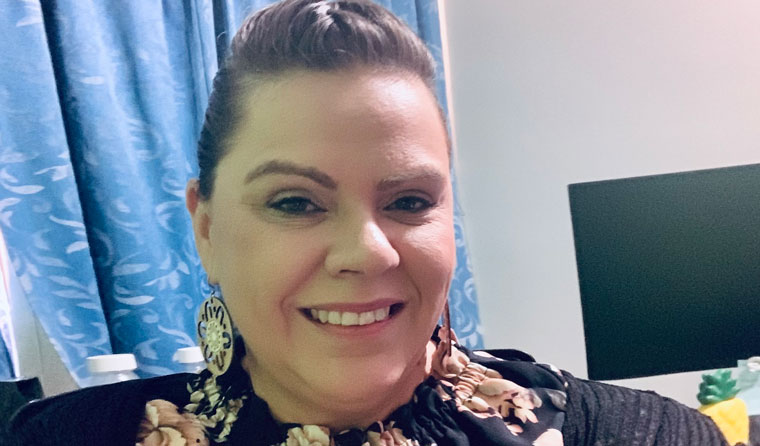News
How do GPs practice cultural humility?
New research is hoping to improve health outcomes by identifying practitioners’ gaps in the understanding and application of cultural humility.
 The University of Melbourne-led research aims to improve healthcare delivery and the doctor–patient relationship.
The University of Melbourne-led research aims to improve healthcare delivery and the doctor–patient relationship.
Developing professional cultural humility is a ‘key strategy’ to help address health inequalities in Australia, according to researchers from the University of Melbourne.
Defined as ‘a shift from the mastering of understanding other cultures, to an approach of personal accountability in advocating against the systemic barriers that impact marginalised groups’, cultural humility is also ‘positively associated’ with improved health outcomes for culturally and linguistically diverse (CALD) patients.
It is why researchers, including RACGP President Adjunct Professor Karen Price, are asking practitioners to take part in a new project focused on assessing cultural humility in Australian GPs.
The research will see GPs participate in a 10–15-minute online survey about their interactions with patients of different cultural backgrounds, experience in cultural humility training and their interest in further training in this area.
In Professor Price’s opinion, cultural humility is a foundational aspect of providing healthcare.
‘We need to recognise the many ways a sense of self and a sense of health is experienced in other cultures,’ she told newsGP.
‘By remaining openly curious we are able to allow other ways of seeing the world to flourish. Only when we make the space for this can we understand the patient’s biographical story of their illness or disease.
‘Then we can engage in true shared decision-making, which is an empathic ability to truly enter into dialogue with our patients’ world view.
‘Our western reductive view is helpful but limiting if we impose this upon others without recognition of each unique person we are privileged to help.’
The project aims to examine GPs’ self-assessment of their cultural humility and its impact on doctor–patient relationships. It will also assess GPs’ confidence in communicating COVID-19 public health messages to CALD patients and identify the need for further cultural competency training.
Dr Olivia O’Donoghue is a descendant of the Yankunytjatjara and Narungga Nations people and the RACGP Aboriginal and Torres Strait Islander Health Censor – the first Aboriginal person to be appointed the role.
She told newsGP that cultural humility is an ‘essential attribute’ for GPs.
‘For me, cultural humility is about understanding myself, my values, my affinities and biases, my attitudes and behaviours and how these effect the people around me,’ Dr O’Donoghue said.
‘It is about knowing and feeling that I am not an expert on my own, let alone anyone else’s culture, so it is important to be open when interacting with others, showing respectful interest in them and their culture and having a genuine commitment to understanding their lived and intergenerational experience.’
When applied to a healthcare setting, cultural humility involves health practitioners recognising unconscious biases and systemic racism that impacts individual and community health, addressing their own cultural prejudices and assumptions, and learning how to interact with patients from different cultural backgrounds to deliver healthcare in a respectful and sensitive manner.
 Aboriginal GP Dr Olivia O’Donoghue believes that cultural humility is a ‘foundation attribute’ to demonstrating cultural understanding and safety.
Aboriginal GP Dr Olivia O’Donoghue believes that cultural humility is a ‘foundation attribute’ to demonstrating cultural understanding and safety.
In addition to seeking out GP self-assessments of cultural humility, the project will also aim to improve cultural safety.
‘We hope that the information gathered through this survey can help identify any gaps in existing cultural humility training in medical school and specialty training,’ the researchers write.
‘Understanding the current landscape within a sample of the medical community will assist in developing methods to address this aspect of healthcare with the ultimate aim of improving quality of care and outcomes for all patients in Australia.’
By identifying cultural differences within the doctor–patient relationship, this will also empower the patient to take full advantage of all the healthcare services available to them, according to the research team.
Within Aboriginal and Torres Strait Islander health specifically, Dr O’Donoghue says that cultural humility is essential to building relationships, respect and trust.
‘Cultural humility is a foundation attribute to demonstrating cultural understanding and cultural safety,’ she said.
‘[It] is a fluid state of gaining experience, self-reflection, self-improvement and re-evaluation.’
The RACGP and National Aboriginal Community Controlled Health Organisation’s cultural safety resource hub can also assist healthcare providers.
Log in below to join the conversation.
Aboriginal and Torres Strait Islander cultural humility cultural safety culturally and linguistically diverse general practice research
newsGP weekly poll
Are you interested in prescribing ADHD medication?